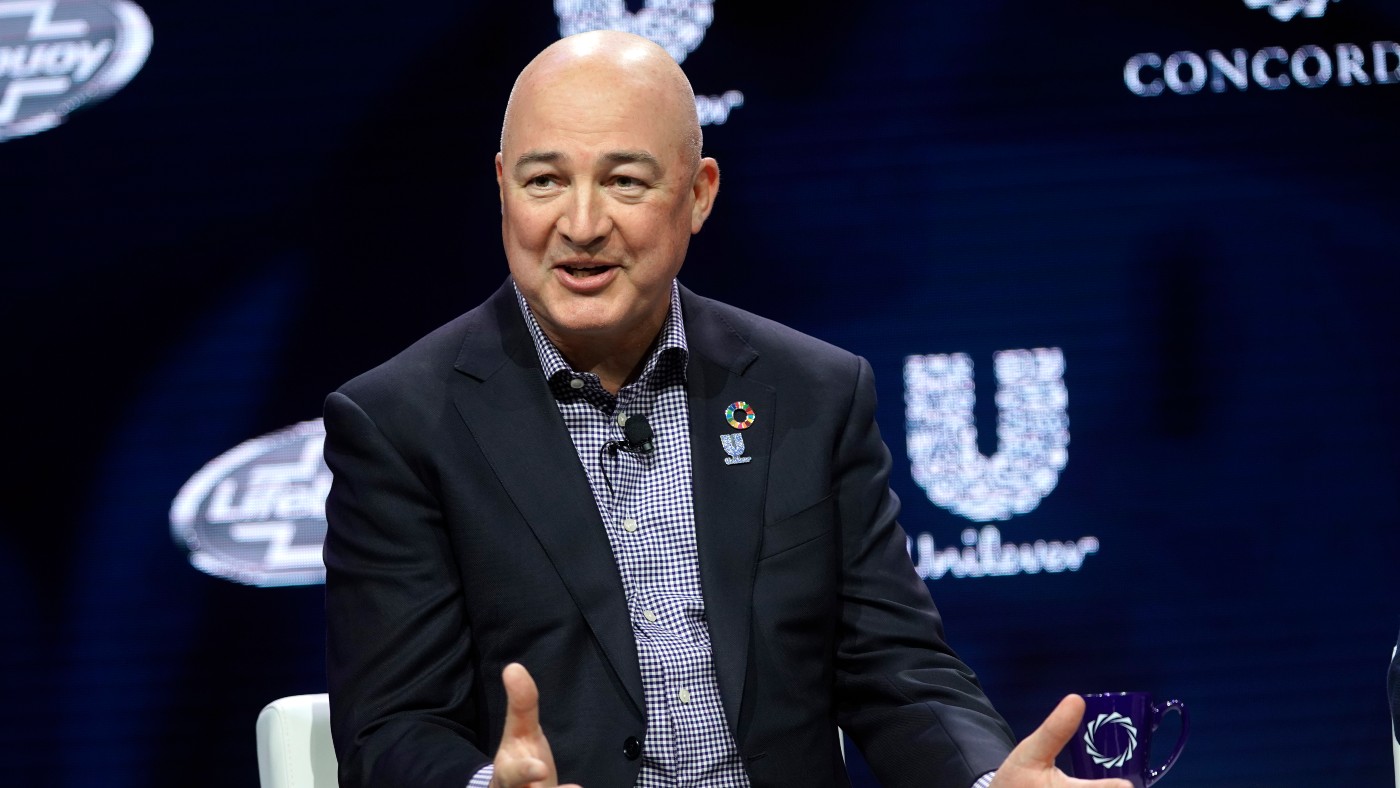Unilever/Glaxo mega-merger: a very bad idea?
History certainly suggests that giant deals like this tend to ‘destroy value’

A free daily email with the biggest news stories of the day – and the best features from TheWeek.com
You are now subscribed
Your newsletter sign-up was successful
“A company that feels it has to define the purpose of Hellmann’s mayonnaise has in our view clearly lost the plot,” sniped investment firm Fundsmith last week, in a “withering criticism” of Unilever’s woke ideology and poorly performing shares, said The Economist. CEO Alan Jope had the perfect retort. The conglomerate has been quietly plotting a blockbuster £50bn mega-merger with GlaxoSmithKline’s consumer healthcare arm to create an all-British consumer goods champion, with brands ranging from Marmite, Pot Noodle and Dove (Unilever), to Sensodyne, Panadol and Tums (GSK). Forget allegations of navel-gazing. How’s that for action?
GSK, which has thrice turned down Unilever’s overtures, isn’t keen, said Ben Marlow in The Daily Telegraph. CEO Emma Walmsley wants to list the consumer arm (currently part-owned by Pfizer) instead. Neither is the market keen: it sent Unilever’s shares 7% south. “This is a very bad idea,” said BNP Paribas. “Please don’t,” added RBC Capital Markets, which reckons Unilever’s attempt at empire-building is “to compensate for, and distract attention from” its problems. History certainly suggests that giant deals like this tend to “destroy value”.
Unilever’s logic is that “demand for health, hygiene and beauty products is likely to grow faster than food brands”, said Dasha Afanasieva on Reuters Breakingviews. But the high price GSK will probably demand could leave Unilever with “indigestion”. Walmsley, who’s had her own problems with disgruntled investors, “must be delighted”, said Ruth Sunderland in the Daily Mail. Unilever’s tilt “sets a new base price for the business” and widens her options. Should she open the field to other bidders? Make Jope up his ante? Stick with the float? Over to you, Dame Emma.
The Week
Escape your echo chamber. Get the facts behind the news, plus analysis from multiple perspectives.

Sign up for The Week's Free Newsletters
From our morning news briefing to a weekly Good News Newsletter, get the best of The Week delivered directly to your inbox.
From our morning news briefing to a weekly Good News Newsletter, get the best of The Week delivered directly to your inbox.
A free daily email with the biggest news stories of the day – and the best features from TheWeek.com
-
 The EU’s war on fast fashion
The EU’s war on fast fashionIn the Spotlight Bloc launches investigation into Shein over sale of weapons and ‘childlike’ sex dolls, alongside efforts to tax e-commerce giants and combat textile waste
-
 How to Get to Heaven from Belfast: a ‘highly entertaining ride’
How to Get to Heaven from Belfast: a ‘highly entertaining ride’The Week Recommends Mystery-comedy from the creator of Derry Girls should be ‘your new binge-watch’
-
 The 8 best TV shows of the 1960s
The 8 best TV shows of the 1960sThe standout shows of this decade take viewers from outer space to the Wild West
-
 Currencies: Why Trump wants a weak dollar
Currencies: Why Trump wants a weak dollarFeature The dollar has fallen 12% since Trump took office
-
 Elon Musk’s starry mega-merger
Elon Musk’s starry mega-mergerTalking Point SpaceX founder is promising investors a rocket trip to the future – and a sprawling conglomerate to boot
-
 TikTok: New owners, same risks
TikTok: New owners, same risksFeature What are Larry Ellison’s plans for TikTok US?
-
 Will SpaceX, OpenAI and Anthropic make 2026 the year of mega tech listings?
Will SpaceX, OpenAI and Anthropic make 2026 the year of mega tech listings?In Depth SpaceX float may come as soon as this year, and would be the largest IPO in history
-
 Leadership: A conspicuous silence from CEOs
Leadership: A conspicuous silence from CEOsFeature CEOs were more vocal during Trump’s first term
-
 Ryanair/SpaceX: could Musk really buy the airline?
Ryanair/SpaceX: could Musk really buy the airline?Talking Point Irish budget carrier has become embroiled in unlikely feud with the world’s wealthiest man
-
 Powell: The Fed’s last hope?
Powell: The Fed’s last hope?Feature Federal Reserve Chairman Jerome Powell fights back against President Trump's claims
-
 Taxes: It’s California vs. the billionaires
Taxes: It’s California vs. the billionairesFeature Larry Page and Peter Thiel may take their wealth elsewhere